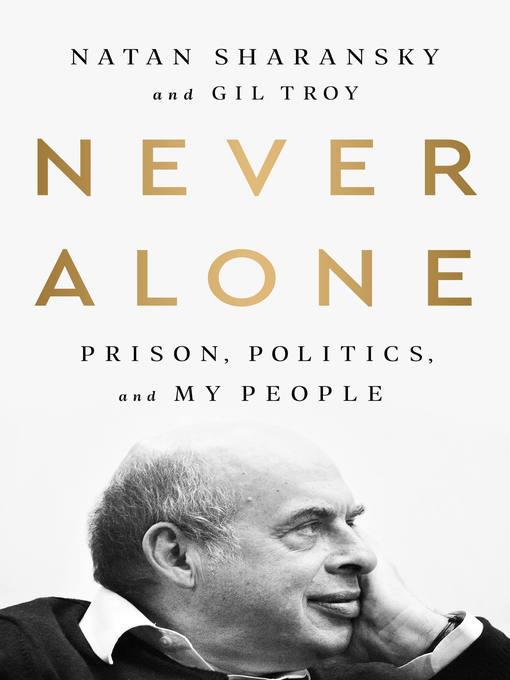
Never Alone
Prison, Politics, and My People
کتاب های مرتبط
- اطلاعات
- نقد و بررسی
- دیدگاه کاربران
نقد و بررسی

September 1, 2020
The noted Soviet dissident and Israeli activist recounts a long history of "living life backward." Trained as a physicist, Sharansky (b. 1948), who co-authored this memoir with historian Troy, spent nine years in Soviet prisons for supposed anti-Soviet crimes. The rest of the time he was either alone--"I always found solitary comfortable, if I could read or write there, if it was warm, and if there was food to eat"--or with a bunkmate or two whom he suspected of being KGB informants. Meeting with Nelson Mandela long afterward, the two political prisoners compared notes: Mandela's sentence was three times longer, but at least he had visitors. Finally, Sharansky was released and immigrated to Israel, where he immediately began agitating for the acceptance of 400,000 of his fellow Soviet Jews. They arrived, a flood of outstanding scientists, artists, and scholars who had followed the guideline that in order to survive they had to excel, and "almost overnight, the number of Israel's doctors, engineers, musicians, and chess players doubled." Sharansky allied for a time with Benjamin Netanyahu, opposing the Oslo Accords and other treaties with Palestine on the grounds that they elevated "[Yasser] Arafat's terrorist dictatorship on the Palestinians, instead of cultivating the more grassroots democratic leadership that was sprouting in the 1990s." For this, he was pegged a rightist, although as the years passed, he became a sort-of-liberal critic of Netanyahu and his party--and he doesn't have much good to say about Donald Trump, either. Charmingly, he describes his backward approach to life events: He celebrated his bar mitzvah at 65, which allowed him to "appreciate my Torah portion's relevance and explain it to everyone without having my rabbi write my speech for me." Since he was imprisoned immediately after his wedding and didn't see his wife for years, he has since worked to make his marriage a happily-ever-after story. Admirers of Sharansky will appreciate this insider's account of Israeli politics and his independent-minded life.
COPYRIGHT(2020) Kirkus Reviews, ALL RIGHTS RESERVED.

October 5, 2020
In this inspirational account, Soviet dissident Sharansky (Defending Identity) chronicles his life story and offers his perspective on the evolving relationship between the state of Israel and the Jewish people. In the book’s strongest sections, Sharansky describes growing up in Ukraine under Stalinist rule, where “being outed as Jewish was like being diagnosed with some debilitating disease.” He learned the art of “doublethink,” publicly professing allegiance to the regime while harboring private doubts, and fully embraced his Jewish heritage after Israel’s victory in the Six-Day War. In 1973, Soviet authorities denied his request to emigrate to Israel. He joined the “Refusenik” and democratic dissident movements, was surveilled and arrested by the KGB on trumped-up treason charges, and served nine years in the gulag before international outcry led to his release. Arriving in Israel in 1986 at age 38, Sharansky cofounded a new Russian immigrants’ political party and became head of the Jewish Agency for Israel. He forcefully articulates his center-right political views, including opposition to the Oslo peace accords, and defends Trump administration policies on Israel while condemning the president’s “moral dithering” after a neo-Nazi rally in Charlottesville, Va. The result is a worthy introduction to the life and work of one of the world’s most famous political prisoners.

























دیدگاه کاربران